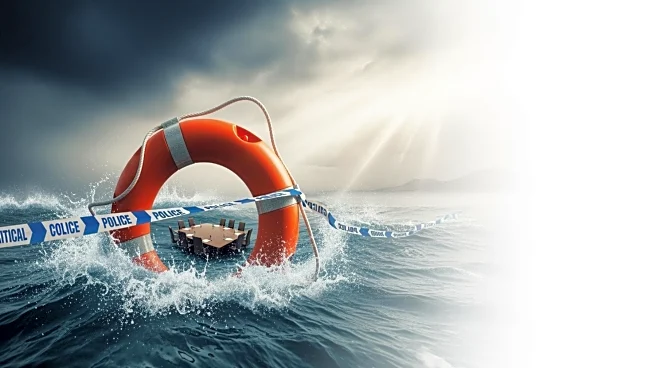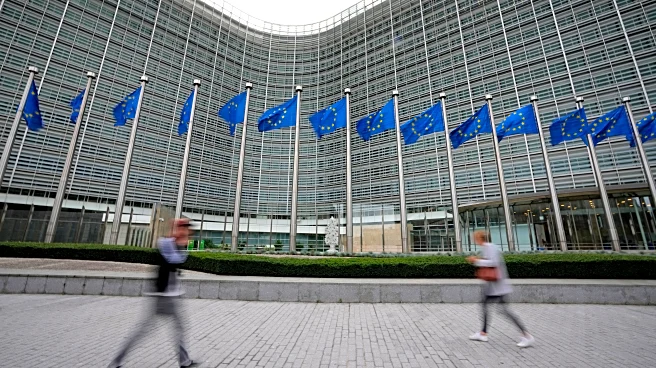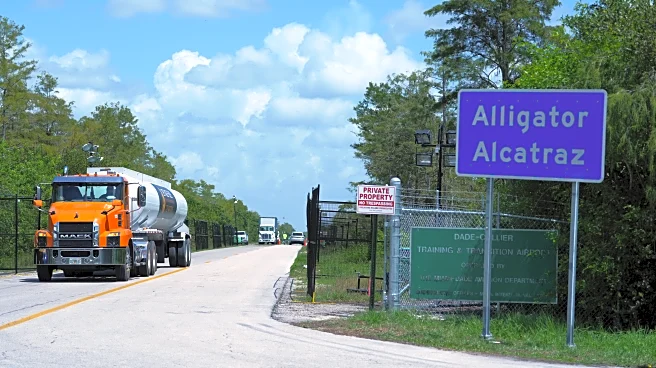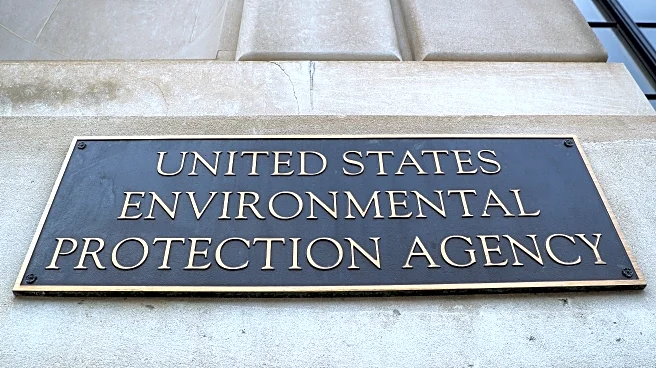What's Happening?
A rubber dinghy carrying 18 migrants sank in the Aegean Sea off Turkey’s southwestern coast, resulting in at least 14 fatalities, according to Turkish officials. The incident occurred shortly after the dinghy departed
from Bodrum, a coastal town in Mugla province. Two survivors have been reported, including an Afghan national, while search and rescue operations are ongoing for two others still missing. The regional governor’s office stated that the dinghy began taking in water soon after departure. Rescue efforts involve four coast guard boats, a diving team, and a helicopter. The migrants' intended destination was not immediately clear, though the Greek island of Kos is nearby.
Why It's Important?
This tragic event underscores the ongoing migrant crisis affecting the region, with Greece serving as a major entry point into the European Union for individuals fleeing conflict and poverty from the Middle East, Africa, and Asia. The perilous journey from Turkey to Greek islands often results in fatal accidents, highlighting the risks migrants face in search of safety and better opportunities. The incident also draws attention to the broader issue of human trafficking, as earlier in the week, Turkish authorities apprehended 169 individuals suspected of trafficking migrants. This situation continues to challenge regional stability and international humanitarian efforts.
What's Next?
Search and rescue operations are expected to continue as authorities attempt to locate the missing migrants. The incident may prompt further scrutiny and action from international organizations and governments regarding migrant safety and trafficking prevention. Additionally, there could be increased diplomatic discussions between Turkey and Greece to address the ongoing migrant crossings and improve safety measures. The tragedy may also lead to calls for enhanced support and resources for migrants attempting dangerous journeys.
Beyond the Headlines
The sinking of the dinghy highlights the ethical and humanitarian challenges faced by migrants and the countries involved. It raises questions about the adequacy of current policies and the need for comprehensive international cooperation to address the root causes of migration and ensure safe passage for those seeking refuge. The event may also influence public opinion and policy discussions regarding immigration and border control within the European Union.









